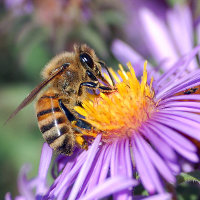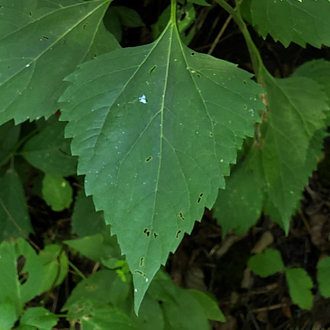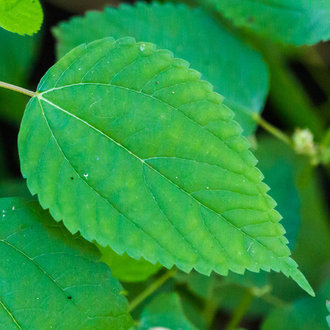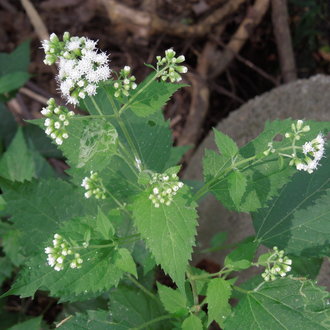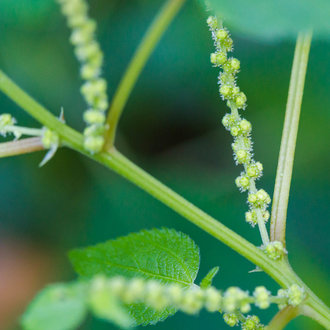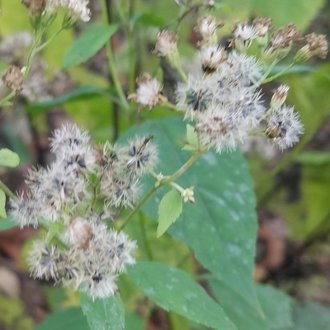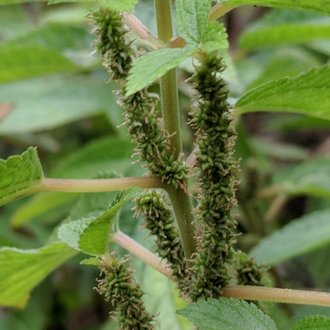White Snakeroot vs Smallspike False Nettle
This guide is under construction and has not been published yet. It may have errors. When in doubt, double-check other sources for definitive ID.These two plants are often confused due to both having opposite, serrated leaves, similar sizes and growth habits, and often occurring together in the same partly-shaded woodland habitats. They are easily distinguished by a close look at the leaves, and even more easily by their flowers or seeds.
White Snakeroot (Ageratina altissima) | Smallspike False Nettle (Boehmeria cylindrica) |
A poisonous perennial herb native to eastern North America. One of the most common members of the Eupatorieae tribe of the aster family. In much of its range, among the last wildflowers to bloom in fall. | A perennial nettle-family plant without stinging hairs, found in sunny wetlands and on lightly shaded moist ground. |
More triangular leaf, particularly evident at the base of each leaf. Leaves smooth-textured above, more likely to appear shiny in photographs. Photo © aarongunnar, CC BY 4.0. | Leaves more ovate, particularly more rounded at the base. Leaves rough-textured above, more likely to appear matte in photographs. Long main side-veins lead leaves to have a triple-veined appearance. Photo © Melissa McMasters, CC BY 4.0. |
Flowers are showy, bright white, forming in fall, often one of the last plants to bloom. Arranged in round-topped clusters at the top of the plant and the ends of larger side-branches. Photo © , CC BY-SA 4.0. | Flowers are inconspicuous, forming in late summer to early fall, and in long spikes coming out of axils lower down on the plant. Photo © Melissa McMasters, CC BY 4.0. |
Larger, heavier, dark gray seeds arranged in small spherical clusters, each with a wispy pappus that enables it to be dispersed by wind. Photo © Alexis Garretson, Public Domain. | Smaller seeds (brown when ripe) arranged in long spikes, without any wispy appendages to aid in wind-dispersal. Photo © Alison Northup, CC BY 4.0. |
References & External Resources
These short lists show only links helpful for ID. For a complete list of references and resources also covering other aspects of ecology, visit the links section of the full article on each plant, which is the first entry here.

